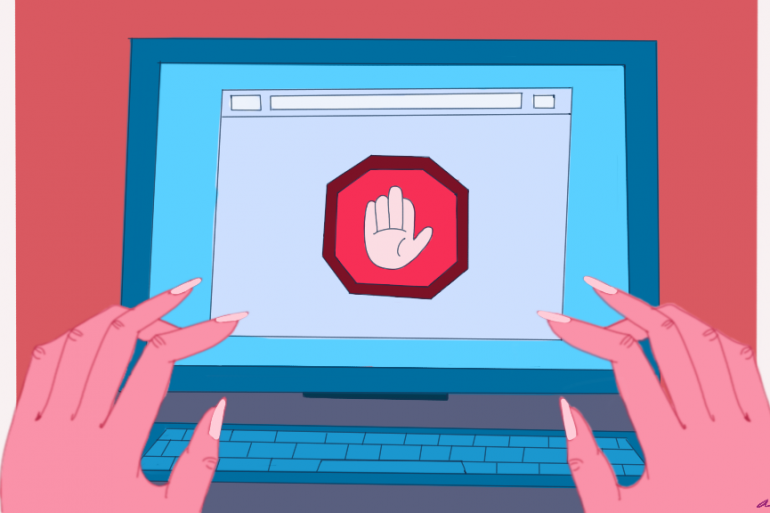
Фінтех у контексті інноваційного метавсесвіту
Фінтех у контексті інноваційного метавсесвіту
CEO fintech-компанії LeoGaming Альона Шевцова проаналізувала новий тренд на метавсесвіт та роль фінтеху у функціонуванні віртуального світу.
Щорічна конференція Facebook Connect, що відбулася 28 жовтня, принесла, мабуть, головне нововведення, яке визначає майбутнє всього інтернету. Марк Цукерберг оголосив про ребрендинг материнської компанії (Meta замість Facebook Inc) і розповів про свої плани щодо створення метавсесвіту. У цьому блозі я розгляну новий тренд, а також проаналізую роль фінтеху у функціонуванні віртуального світу.
Фантаст Ніл Стівенсон близько 30 років тому вигадав термін метавсесвіт, що передбачає стадію еволюції інтернету в щось більше. Це можливість створити загальний цифровий світ, який вміщує доповнену і віртуальну реальності. Мета такого метавсесвіту — організувати вільне місце, віртуальний притулок від проблемної дійсності. В основі механіки нового ймовірного світу лежить відтворення будь-яких дій людини у реальному світі, які стануть доступними після підключення до неї у формі штучної оболонки — аватара. Ігровий персонаж людини в метавсесвіті може бути ким захоче та володіти чим завгодно, а смерть не означає те саме і в реальному світі.
Сам Марк Цукерберг позиціює новий віртуальний світ як наступний ступінь еволюції соціальних зв'язків — відкритий всім людям планети. Всім охочим буде доступне навчання, ігри онлайн у 3D — все це виходить за рамки сьогоднішніх можливостей. При цьому флагманські програми Facebook, Instagram, WhatsApp залишаться без змін.
Крім соціальних мереж та месенджерів, компанії належить Oculus (бренд пристроїв віртуальної реальності), Horizon (VR/AR-платформа), Facebook Reality Labs (компанія з розробки програмних рішень для віртуальної реальності), а також платіжна система Facebook Pay, криптовалютний проєкт Libra та криптогаманець Novi, який поки що на етапі розробки. Тобто корпорація зібрала майже всі елементи, необхідні реалізації метавсесвіту. До роботи над проєктом вже залучають тисячі кваліфікованих інженерів.
Зараз Meta готова вкласти $10 млрд у створення інфраструктури для нового віртуального всесвіту. У планах компанії об'єднання не тільки всіх продуктів, що входять до Facebook, а й додавання нових сервісів та форматів завдяки технологіям віртуальної та доповненої реальності. На цьому етапі поки не пояснюється, як працюватиме метавсесвіт, проте вже заявлено про велику роль криптотехнологій NFT чи смартконтрактів.
Згадка цифрової валюти була невипадковою, адже платити у метавсесвіті теж треба. Криптовалюти дозволять людям відправляти та отримувати гроші в будь-яку точку світу миттєво, безпечно та без комісії. За фактом, це колосальна платіжна мережа, де засобом оплати може стати криптовалюта Libra або будь-яка інша монета. Такі маневри очікувано підштовхнуть вгору платіжний ринок та компанії, пов'язані з транзакціями у віртуальному світі.
За останнє століття кількість платіжних способів диверсифікувалася внаслідок появи нових комунікаційних технологій та збільшення кількості транзакцій, які здійснюються однією людиною щодня. Наприклад, PayPal, Square і Cash App тепер є платіжним методом за замовчуванням для багатьох, а не просто ще одним способом оплатити товар, разом з банківською картою. Перекази між користувачами однієї й тієї ж платіжної платформи фактично є просто перерозподілом грошей, що зберігаються всередині самої екосистеми. Зважаючи на це, транші відбуваються миттєво, і платформи зазвичай не стягують комісію. Платежі у метавсесвіті також можуть спровокувати революцію на ринку, адже йдеться про виключно віртуальні товари та цифрові транзакції.
Теоретично, у віртуальному світі платіжні системи мають бути кращими, ніж у реальному. Ця економіка насамперед містить товари, які існують лише віртуально, і купують їх за допомогою виключно цифрових транзакцій (і, отже, з низькою собівартістю). Здебільшого вони коштують $5–100 за штуку. Але ця економіка також велика. Ринок ігрових digital goods у 2019 році коштував $54 млрд. Для порівняння кінопрокат зібрав $42 млрд, а магазини музики — $30 млрд. Такі оплати також не становлять системного фінансового ризику і не відіграють критичної ролі у суспільстві. При цьому охоплюють тисячі учасників ринку та десяток конкурентних платформ, що має призвести до творчості, інновацій та конкуренції у платежах.
Гіганти ринку серйозно сприйняли новини про метавсесвіт і готуються до виходу на нові віртуальні ринки. Nike вже зареєструвала свої логотипи та слоган у категорії віртуальних товарів. Усього від компанії подано 7 заяв до Управління патентами та товарними знаками США, щоб ніхто не зміг скористатися товарними знаками без ліцензії. Такі дії свідчать про підготовку Nike до продажу одягу у метавсесвіті.
У день презентації акції Facebook (на біржі NASDAQ: FB) зросли на 3,5%. Це є ознакою зацікавленості інвесторів, акціонерів та багатьох учасників ринку у метавсесвіті. З розвитком проєкту зростатиме і платіжний ринок, розширюючи методи оплати, збільшуючи швидкість транзакцій та зменшуючи їхню вартість.




